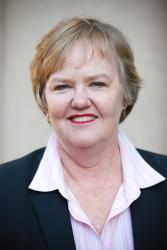

9:00 am EDT - 10:30 am EDT
Past Event
9:00 am - 10:30 am EDT
1775 Massachusetts Ave., NW
Washington, DC
Recent conflicts in the Arab world point to the contribution and challenges of the international justice system in the promotion of peaceful dispute settlement and human rights. The United Nations Security Council referred the Qaddafi regime in Libya to the International Criminal Court (ICC) for criminal investigation, yet comparable violations in Syria have yet to warrant a similar response. Balancing the complicated dynamics of global politics while promoting international law is only one of several difficulties international courts navigate. The rise of non-state actors in conflict is another challenge they must address to remain effective in their efforts to bring domestic law in line with international standards.
On March 30, the Managing Global Order project at Brookings and the Royal Netherlands Embassy hosted the leaders of the Hague’s international courts to discuss their accomplishments and challenges in the pursuit of international justice. Panelists included: Peter Tomka, president of the International Court of Justice; Sang-Hyun Song, president of the ICC; Theodor Meron president of International Criminal Tribunal of the former Yugoslavia; and Brooks Daly, secretary general of the Permanent Court of Arbitration. Jozias Van Aartsen, mayor of the Hague, chair of the Hague Institute for Global Justice, and former foreign minister of the Netherlands, offered introductory remarks. Senior Fellow Elizabeth Ferris, co-director of the Brookings-LSE Project on Internal Displacement, moderated the discussion.


Constanze Stelzenmüller
April 22, 2024

Andrew Yeo
April 17, 2024

Witney Schneidman
April 17, 2024